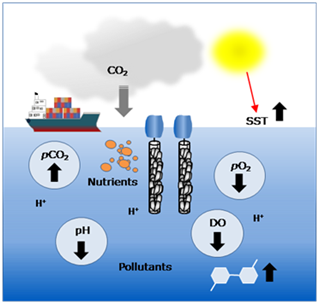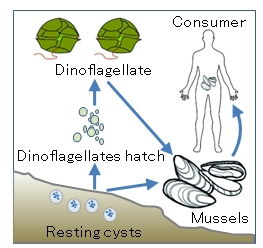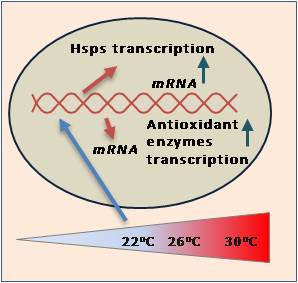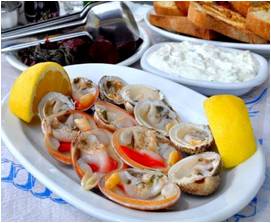Global warming and significant economic impacts on bivalve farming-Emerging need for mitigating the impacts
Climate change is expected to heavily affect the Mediterranean marine ecosystems, resulting in significant declines in the resources and services they provide. Researchers highlight the need for mitigating the synergistic effects of several drivers of climate change including intensity of hot periods, pathogens, acidification, eutrophication, and pollution (Anestis et al., 2007; Feidantsis et al., 2020; Lattos et al. 2020). In addition, evolutionary processes might cause an emergence of new strains of pathogen species with unpredictable consequences to bivalve farming and economy. Theodorou et al. (2020) estimated that continuous closures of harvesting sites due to HABs, lasting more than 4 to 6 weeks during spring and summer could be catastrophic for the local economy. In this prism a recent investigation reported that the distribution and effects of harmful algal blooms are becoming more common, leading to more frequent and prolonged disruptions of product supply, which can easily result in a loss of market share for the affected production area. Seed mortalities are another indirect effect of climate change, more common in Southern European production areas, but also Northern Europe has recently has been affected. Climate change is perceived as a major threat in Spain, Italy, France, Greece, Germany, Slovenia and Portugal (Avdelas et al., 2021).
- Anestis A, Lazou A, Pörtner HO, Michaelidis B. (2007). Behavioral, metabolic, and molecular stress responses of marine bivalve Mytilus galloprovincialis during long-term acclimation at increasing ambient temperature. Am. J. Physiol. 293: R911–R921.
- Avdelas L. et al. (2021). The decline of mussel aquaculture in the European Union: causes, economic impacts and opportunities. Reviews in Aquaculture 13, 91–118
- Feidantsis K, Giantsis IA, et al., (2020). Correlation between intermediary metabolism, Hsp gene expression, and oxidative stress-related proteins in long-term thermal-stressed Mytilus galloprovincialis. Am J Physiol. 319(3):R264-R281.
- Lattos, Athanasios; Giantsis, Ioannis A.; Karagiannis, Dimitrios; Theodorou, John A.; Michaelidis, Basile. 2020. "Gut Symbiotic Microbial Communities in the IUCN Critically Endangered Pinna nobilis Suffering from Mass Mortalities, Revealed by 16S rRNA Amplicon NGS" Pathogens 9, no. 12: 1002.
- Theodorou JA, Moutopoulos DK, Tzovenis I. Semi-quantitative risk assessment of Mediterranean mussel (Mytilus galloprovincialis L.) harvesting bans due to harmful algal bloom (HAB) incidents in Greece. Aquac Econ Manag 2020. 24(3):273-293.







